Why are alcohol free drinks becoming so popular? Rise of low and no alcohol products explained amid sales boom
This article contains affiliate links. We may earn a small commission on items purchased through this article, but that does not affect our editorial judgement.
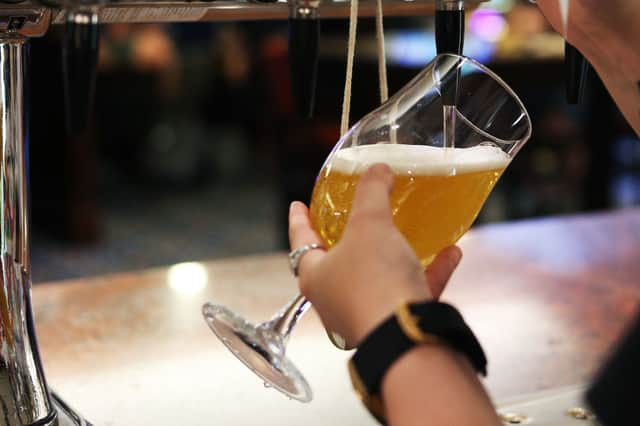

Browse the alcohol aisles of any major UK supermarket and you’ll notice alcohol free drinks are taking up more and more shelf space.
Far from being a phenomenon only seen during Dry January, or a joke category designed to trip candidates up on BBC series The Apprentice, low and no alcoholic drinks are a serious business.
Advertisement
Hide AdAdvertisement
Hide AdThe market is worth more than £90m and has attracted major investment from brands like Heineken, Peroni and Brewdog, as well as celebrities like Made in Chelsea star Spencer Matthews, who owns zero alcohol spirits brand CleanCo.
So why are alcohol free drinks doing so well - could going down the pub for a couple of pints of alcohol free beer become the norm?
Here’s what you need to know.
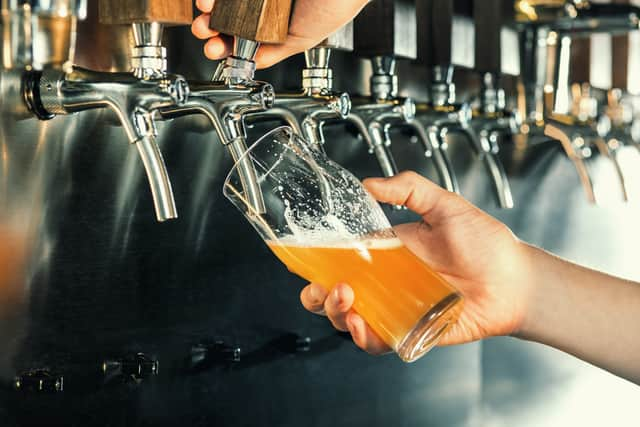

Are more people going sober?
While it might seem to have come out of the blue in recent years, the trend for low and no alcohol drinks has been brewing for some time.
According to charity Alcohol Change UK, which runs the official annual Dry January awareness month, there’s always been a “sizeable chunk” of the UK population that either abstains partially or completely.
Advertisement
Hide AdAdvertisement
Hide AdBut the number of people doing this, which is often reported to be around the 20% mark, has been growing according to the charity’s director for Wales, Andrew Misell.
“What we’ve seen in recent years is more and more young people giving up alcohol, or never starting drinking in the first place,” Misell says.
“Looking at it positively, it may be that they’re keen to look after their physical and mental health and don’t want to emulate the heavy drinking habits of their middle-aged parents.
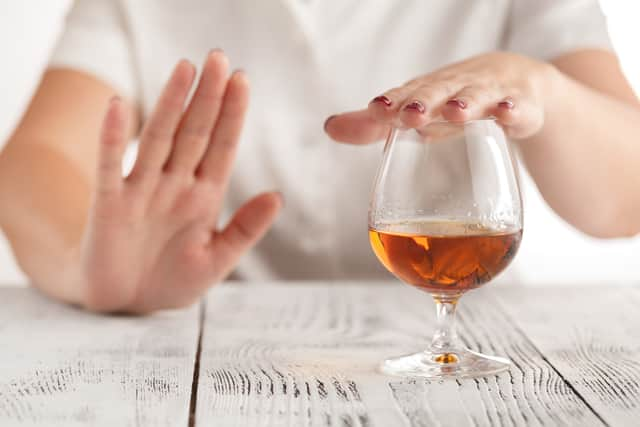

“Also, the British population is more diverse than it was and more British people are from cultures where alcohol isn’t consumed. That may be making more of us realise that we don’t have to drink to socialise.
Advertisement
Hide AdAdvertisement
Hide Ad“On the other side, in-person socialising for young people that traditionally may have involved drinking has been replaced by endless hours online.”
Another hypothesis is that sober influencers are getting cut through on social media sites like Instagram and TikTok, which has sparked “a big conversation about drinking and not drinking,” according to Misell.
Surveys have also found that people are choosing to cut their alcohol intake more regularly.
A third of 2,079 UK adults polled as part of a YouGov survey for industry body The Portman Group said they were opting for low and no booze drinks on a ‘semi-regular’ basis.
Advertisement
Hide AdAdvertisement
Hide AdThis is up from around one in four in a similar survey conducted in 2021.
Reasons for this stance included a desire to avoid hangovers and making it easier to travel to and from social events.
Why are more zero alcohol options coming out now?
So, there are clearly a lot of people who are not drinking, or at least aren’t drinking as much as they once were.
But according to drinks expert and author of The Spirits, Richard Godwin, drinks companies have only recently realised this “untapped market” exists.
Advertisement
Hide AdAdvertisement
Hide Ad“There’s long been a market for decent, more grown up soft drinks that are not packed with sugar and e-numbers,” he tells NationalWorld.
“They have not been well-served in bars and pubs.”
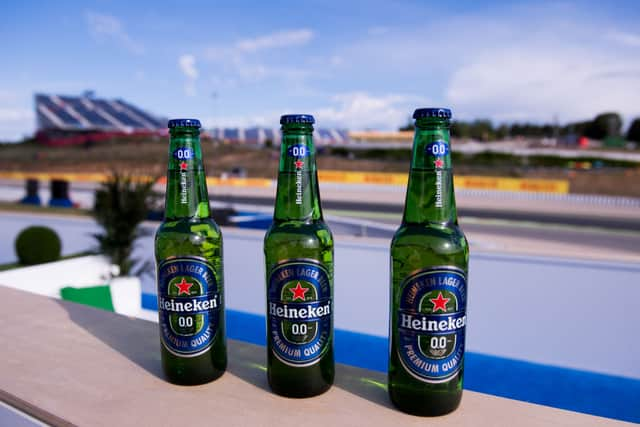

Until now, that is.
Over the past five years, supermarkets as well as pubs and bars have begun to offer more and more options.
“Consumers have really responded to that, and producers have reacted by adding even more low-alcohol drinks to their range,” says Misell.
One of the big producers driving this change has been Heineken.
Advertisement
Hide AdAdvertisement
Hide AdIt plans to roll out a draught version of its 0.0 alcohol free lager across “hundreds” of pubs in 2022 and has a longer term aim to have as many 0% taps across the UK as there are for regular Heineken lager by 2025.
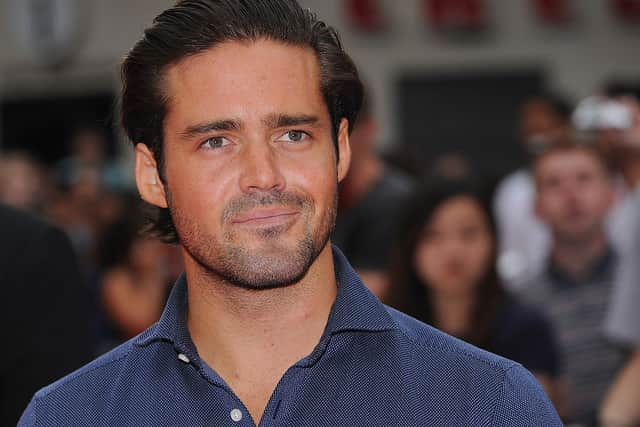

The brewer made the announcement after what it described as a “successful” trial in the Midlands and North of England last summer.
Heineken says it believes moving beyond bottles and cans will make alcohol free “more acceptable, accessible and even a ‘cool’ choice” for drinkers.
What does the future hold for 0% alcohol?
While it is a category that’s undoubtedly on the rise, alcohol free drinks still only make up a small proportion of the overall booze market.
Advertisement
Hide AdAdvertisement
Hide AdFor example, no and low beer has just a 0.6% share of the overall beer and cider market.
And there are other hurdles.
Speak to any food and drink manufacturer and they will tell you that taste is king. But not all alcohol free drinks have quite nailed it.
“Non-alcoholic beer is excellent and that’s drastically improved over the last few years. But I haven’t tried a non-alcoholic spirit that’s worth it,” says Godwin.
“Some alcohol free spirits taste great but others taste like someone has mopped up the oils at the end of a massage and put it in a bottle.”
Advertisement
Hide AdAdvertisement
Hide AdGodwin adds that while he “really likes” the category, he expects it to go the same way as craft gin, with the market “falling away” after the novelty wears off and smaller businesses fade away.
Heineken also believes there are “stigmas” attached to low and no alcohol beer “among certain sections of society”.
And there are also some fears that the category is being used to whitewash alcohol brands’ reputations.
“Some people have voiced concerns that alcohol free versions of popular alcohol brands are an opportunity for alcohol producers to present a more positive public image whilst keeping their branding under our noses,” says Misell.
Advertisement
Hide AdAdvertisement
Hide Ad“It’s even been suggested that alcohol-free beers and wines will lead to people drinking more of the full-strength versions. It’s possible but we don’t know enough to say for sure either way.”
But for now at least, you wouldn’t bet against it soon becoming the norm for people to head to their local for a pint or two of 0% beer and a packet of crisps.
A message from the editor:
Thank you for reading. NationalWorld is a new national news brand, produced by a team of journalists, editors, video producers and designers who live and work across the UK. Find out more about who’s who in the team, and our editorial values. We want to start a community among our readers, so please follow us on Facebook, Twitter and Instagram, and keep the conversation going. You can also sign up to our email newsletters and get a curated selection of our best reads to your inbox every day.
Comment Guidelines
National World encourages reader discussion on our stories. User feedback, insights and back-and-forth exchanges add a rich layer of context to reporting. Please review our Community Guidelines before commenting.
